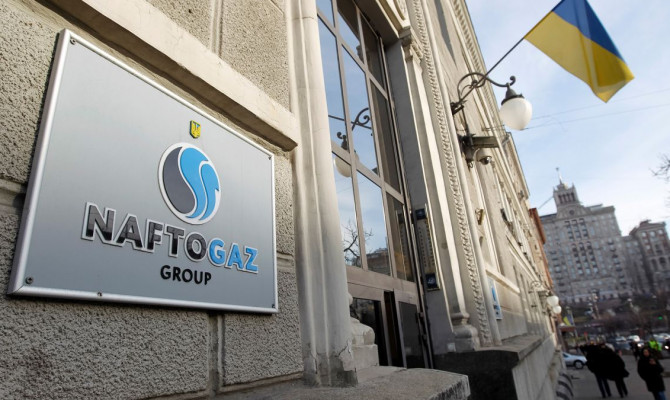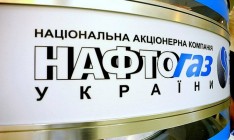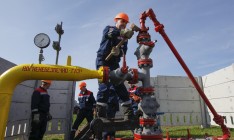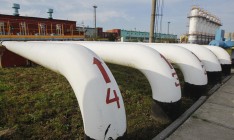Naftogaz: Profit from a Loan, Bonuses for Silence — Anatomy of a Pseudo-Success

In 2024, the National Joint Stock Company Naftogaz of Ukraine reported record growth in its financial indicators. The company’s net profit amounted to 23.9 billion UAH, while the consolidated profit of the group reached 38 billion UAH — an increase of 64% compared to the previous year. At first glance, these numbers could serve as compelling evidence of effective corporate governance and successful reform. However, a closer look at the structure of this profit reveals a far less heroic picture.
Before celebrating these figures, one must ask a basic question: where did this profit actually come from? In 2024, Naftogaz received €410 million — approximately 19.3 billion UAH — from the European Bank for Reconstruction and Development and the Government of Norway. Part of the funding was provided as a loan, and part as grant support. The goal was to finance the purchase of one billion cubic meters of natural gas. The company procured the gas in a timely and favorable manner, sold it with a margin, recorded the profit, and reflected it in the financial report.
In other words, this was not profit generated through internal reforms or strategic management. It was a well-executed trade operation enabled by external financing. It does not diminish the fact that the project was implemented properly, but it does shift the narrative: this profit didn’t emerge from scratch — it resulted from donor money.
Against this backdrop, a more sensitive issue arises: how was this profit distributed, and who were the primary beneficiaries? According to the company’s financial statements, 81 million UAH was allocated to compensate senior management — board members and directors. That’s 4 million UAH more than in 2023. Even more striking are the costs associated with the supervisory board’s activities: 33 million UAH, of which 29 million constituted fixed remuneration and 4 million covered incidental expenses. For comparison, in 2023, this figure was nearly half as much.
Formally, these payments were contractually stipulated and consistent with existing law. However, the absence of public auditing of the supervisory board’s decisions — including how often it met and what outcomes it achieved — raises serious concerns. The public has not received any credible confirmation that the board’s actions contributed to the improved financial results. In practice, the supervisory board, which is meant to be an instrument of institutional accountability, has become a costly and opaque appendage.
Its composition is no less concerning. The board currently includes four foreign “independent” experts and three state representatives — from the Office of the President and the Cabinet of Ministers. While this setup is supposed to ensure balance and professionalism, in practice it often serves as a formal cover for decisions made internally. Without KPIs, public reports, or independent assessments of performance, the institution morphs from supervisory to symbolic.
And all of this is happening in a year when the country remains at war, the state budget is being slashed, and Ukrainian doctors, soldiers, and teachers often go without basic financial support. In this context, multimillion-dollar payouts to executives at a state-owned company are not merely inappropriate — they fuel deep public mistrust. Contracts and formalities are a poor excuse when the state finances the earnings of a privileged caste that shows no transparency or measurable effectiveness.
The consequences are clear. Public trust in the reform of state-owned enterprises is eroded. The credibility of independent oversight mechanisms is undermined. Ukraine’s reputation with its international partners is compromised. All of this plays into the hands of those who have long claimed that Ukrainian reforms are a façade.
Regrettably, in the case of Naftogaz, it is difficult to counter that argument. A profit that could have become an opportunity to build a new model of governance has instead turned into an illustration of old logic — profits generated through external funds, bonuses handed out for silence, and oversight stripped of responsibility. This is not a story of reform. It is a symptom of a deeper illness: the simulation of effectiveness where political expediency has long taken its place.
To change the situation, cosmetic reports will not suffice. What is needed are real actions: a public audit of the sources of profit, transparent reporting by the supervisory board, enforceable KPIs for management, and remuneration tied directly to results. Without this, even the most impressive profits will remain nothing more than accounting illusions — bright, but hollow.





 of the agreement of syndication with Financial Times Limited are strictly prohibited. Use of materials which refers to France-Presse, Reuters, Interfax-Ukraine, Ukrainian News, UNIAN agencies is strictly prohibited. Materials marked
of the agreement of syndication with Financial Times Limited are strictly prohibited. Use of materials which refers to France-Presse, Reuters, Interfax-Ukraine, Ukrainian News, UNIAN agencies is strictly prohibited. Materials marked  are published as advertisements.
are published as advertisements.